Legal Aspects of Importing from China
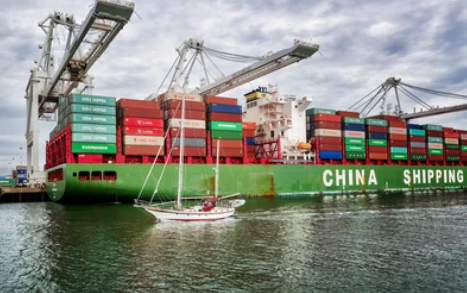
Embarking on an importing journey from China is filled with promise and potential, but understanding the legal landscape is paramount for success. In this guide, we navigate through the Legal Aspects of Importing from China, offering insights, strategies, and essential information to ensure a seamless importing experience.
Navigating Customs Regulations
Navigating customs regulations is a crucial aspect of importing. From understanding documentation requirements to valuation methods, this section provides detailed insights into ensuring a smooth clearance process.
Importers often find themselves entangled in the complexities of customs regulations. The key to a successful importing process lies in comprehending the nuances of these regulations. Understanding the necessary documentation is the first step – commercial invoices, packing lists, and bills of lading must be accurate and detailed. This not only expedites the customs clearance process but also helps in avoiding potential legal pitfalls.
Valuation methods are another critical consideration. Customs duties are often calculated based on the value of the imported goods. Therefore, importers must be well-versed in the acceptable valuation methods to ensure compliance and fair assessment. Utilizing the expertise of customs brokers can be invaluable in navigating these regulations efficiently.
Legal Documentation Requirements
Accurate and detailed documentation is the backbone of successful importing. In this section, we delve into the essential legal documents, such as the commercial invoice, packing list, and bill of lading, shedding light on their significance.
Legal documentation is the cornerstone of a smooth importing process. The commercial invoice, detailing the transaction’s specifics, serves as the primary document for customs authorities. Ensuring its accuracy is paramount. The packing list provides a comprehensive breakdown of the shipment, aiding in customs inspections and verifications. The bill of lading, on the other hand, acts as a receipt and a title deed, signifying ownership and facilitating the transfer of goods.
Importers must pay meticulous attention to these documents, as any discrepancies can lead to delays, fines, or even the seizure of goods. Employing the services of experienced documentation professionals can mitigate risks and ensure compliance with legal requirements.
Tariffs and Duties
Financial considerations, specifically tariffs and duties, play a pivotal role in the importing process. This section breaks down the intricacies of these financial obligations, providing insights on effective cost management.
Understanding the financial implications of importing is crucial for sustainable business operations. Tariffs and duties represent a substantial portion of the overall costs. Importers must grasp the intricacies of these charges, including how they are calculated and the various factors influencing their determination.
Effective cost management involves strategic planning and consideration of duty reduction programs, such as free trade agreements or preferential tariff schemes. By exploring these options, importers can minimize financial burdens, enhance competitiveness, and ensure compliance with legal requirements.
Intellectual Property Protection
Protecting intellectual property is a critical concern when engaging in international trade. We explore legal measures such as trademarks and patents to safeguard businesses from potential infringements.
In the global marketplace, intellectual property (IP) protection is paramount. Importing goods from China requires a robust strategy to safeguard trademarks, patents, and other intellectual assets. Establishing a comprehensive understanding of China’s IP laws and regulations is essential for importers seeking to protect their brands and innovations.
Registering trademarks and patents in China provides a legal framework for recourse in case of infringement. Collaborating with legal experts specializing in international IP law can offer valuable insights and assistance in navigating the complexities of intellectual property protection.
Quality Control and Product Compliance
Maintaining product quality and compliance with regulations are paramount. This section delves into the legal aspects of quality control, product compliance, and the role of inspections in ensuring goods meet required standards.
Ensuring that imported goods meet quality standards is not only a business imperative but also a legal requirement. Quality control measures must be implemented throughout the supply chain, from production in China to arrival at the destination country.
Product compliance involves adhering to the regulatory standards of the destination country. Importers must be well-versed in these regulations to avoid legal complications. Conducting thorough inspections, either through third-party agencies or internal quality control teams, is crucial. This not only ensures compliance but also enhances consumer satisfaction and trust in the brand.
Understanding Trade Agreements
International trade is influenced by various trade agreements. We explore the legal implications of these agreements, providing insights into how they impact tariffs, market access, and overall trade relations between countries.
Trade agreements play a pivotal role in shaping the legal landscape of international trade. Understanding their implications is essential for importers. Free trade agreements (FTAs) and preferential trade arrangements can significantly impact tariffs, providing cost advantages to importers.
Navigating the legalities of trade agreements involves a detailed analysis of the specific agreements between China and the destination country. Importers can leverage these agreements to optimize costs, enhance market access, and gain a competitive edge in the global marketplace.
Legal Challenges and Dispute Resolution
Legal challenges are inevitable in the importing process. This section addresses common legal issues faced by importers, offering practical guidance on effective dispute resolution mechanisms.
Despite meticulous planning, importers may encounter legal challenges. Contract disputes, shipping discrepancies, or issues with suppliers can disrupt operations. Having a clear understanding of dispute resolution mechanisms is vital.
Contracts should include well-defined dispute resolution clauses, specifying the preferred methods such as arbitration or mediation. Importers should also be aware of the legal frameworks governing international trade disputes and seek legal counsel when needed. Timely resolution not only mitigates risks but also preserves business relationships.
Importance of Legal Counsel
Legal expertise is invaluable when importing from China. We emphasize the significance of seeking legal counsel, discussing how professional advice can mitigate risks, ensure compliance, and safeguard business interests.
The complexities of international trade demand legal expertise. Importers should consider legal counsel as an indispensable partner in their business ventures. Legal professionals specializing in international trade laws can provide valuable insights, ensure compliance with regulations, and offer strategic advice to navigate the legal intricacies of importing from China.
From contract reviews to dispute resolution, having legal counsel by your side is an investment in the long-term success and sustainability of your importing business.
Case Studies: Legal Pitfalls
Real-life examples offer valuable lessons. We explore case studies highlighting legal pitfalls faced by importers, providing practical insights into navigating challenges effectively.
Learning from real-world scenarios is instrumental in understanding and mitigating legal risks. Case studies illustrate how legal pitfalls can impact businesses and offer insights into preventative measures and effective responses.
For example, a case study might delve into a situation where a lack of due diligence in understanding local regulations led to significant fines and delays. By analyzing such cases, importers can proactively address potential challenges, ensuring legal compliance and operational efficiency.
The Future of Importing Laws
The legal landscape is dynamic. This section speculates on the future of importing laws, considering potential changes and their implications for businesses engaged in international trade.
Anticipating changes in importing laws is crucial for strategic business planning. This section explores potential trends, regulatory shifts, and emerging legal considerations that could impact the importing landscape in the future.
For instance, the rise of e-commerce and digital trade may prompt adjustments in regulations governing cross-border transactions. Importers should stay informed about legislative developments and be adaptable to changes that may affect their operations.
FAQs
Q: Are products from China Wholesale of good quality?
A: Yes, China Wholesale offers a diverse range of products with stringent quality control measures to ensure customer satisfaction.
Q: How can I trust the authenticity of products purchased from China Wholesale?
A: Look for reputable suppliers and read customer reviews. China Wholesale has many trustworthy vendors providing genuine products.
Q: Can I buy single items, or is China Wholesale only for bulk orders?
A: China Wholesale caters to both individual consumers and businesses, allowing you to buy single items or in bulk.
Q: Are there any hidden costs when importing products from China Wholesale?
A: It’s essential to be aware of potential import duties and shipping costs. Check with the supplier for transparent pricing.
Q: What is the return policy for products purchased from China Wholesale?
A: Return policies vary, so it’s crucial to review the terms and conditions of the specific supplier you choose.
Conclusion
In conclusion, understanding the Legal Aspects of Importing from China is a cornerstone of a successful importing venture. This guide equips you with the knowledge and insights needed to navigate the complexities, make informed decisions, and ensure a seamless importing process.
Recent Posts
- Budget-Friendly Imports: Strategies for Cost Control When Importing Goods From China
- Bridging Cultures: Navigating Cultural Aspects in China Imports
- Guide to working with a sourcing agent in China for startups
- How China Sourcing Agents Can Transform Your Business
- Exploring the Benefits of Collaborating with a China Sourcing Agent
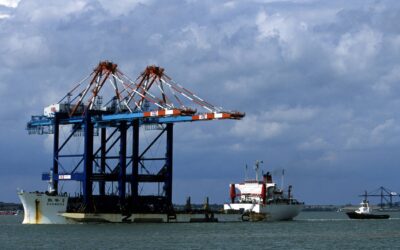
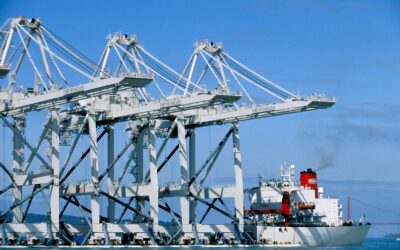
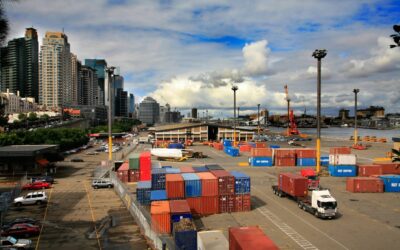


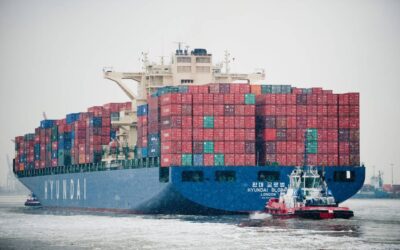

Recent Comments